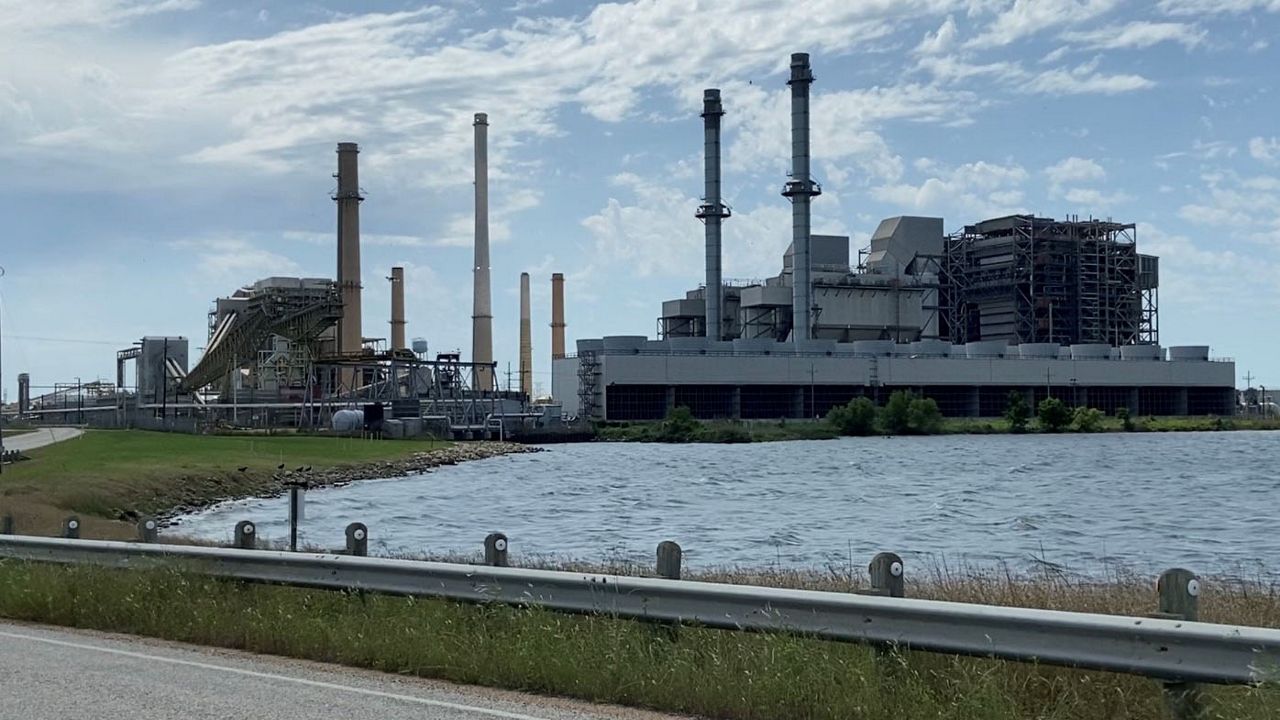AUSTIN, Texas — With the Biden Administration pushing for a 50% reduction in greenhouse emissions by 2030, several sustainability experts say it won’t be possible without retiring much of the nation’s coal power plants. Much of that has already been set in motion, forced by the economics of the power industry.
Rural communities, where many of these plants were some of the largest employers, are being forced to get creative with how to use the existing infrastructure to bring new jobs to town.
Clint Brown has been coaching girls softball since his daughter was in high school more than a decade ago. His busy schedule as a traveling construction superintendent rarely allowed him to coach practice.
“Trying to make it back for practices and tournaments, and on the airplane Friday and Monday - it got old after a while,” commented Brown.
That’s not a problem anymore. Brown recently put roots back down in the community he grew up in, working as a project manager inside the same Alcoa plant that brought his family to Milam County years ago.
“My dad was a brick-layer. He was a contractor,” said Brown. “They built carbon-baking furnaces.”
The plant isn’t using those carbon-baking furnaces anymore. Alcoa had originally set up shop just outside Rockdale in the early 1950s at the request of the government to make aluminum for the Korean War effort, according to Milam County native and current Milam County Judge Steve Young.
“The reason they selected Milam County was because of this huge reserve of lignite coal,” said Young.
The coal was used to fuel the Sandow Power Plant, built by Alcoa to help run its power-hungry aluminum smelter.
In 2008 Alcoa, the county’s largest employer, announced they were closing up. The plant’s closure would result in roughly 1,200 employees being laid off.
Ten years later, Luminant, the power generation company operating Sandow, announced they would be shuttering the coal power plant, resulting in another 400 people in Milam County losing work. Young became county judge the following year, facing even more bad news for his county.
“In December of ’18 we lost both hospitals,” recalled Young. “People here were in a state of despair, just kind of waiting for the other shoe to drop.”
Young had worked on trying to find another power company to take over operations at Sandow, but his efforts were unsuccessful.
“We called around looking for people to take it over and the answer was that no one was interested in a coal-fired generator,” said Young.
It’s just not profitable anymore as it's more expensive to produce than natural gas and increasingly more expensive than the power being generated by renewables. Even retrofitting the plant to use natural gas would be too costly.
Sandow was one of six coal power plants in Texas to shutter between 2018 and 2020. Five more coal-fired plants are slated to close in Texas over the next decade.
Luckily another industry had expressed interest in tapping the existing infrastructure out at the old Alcoa plant, specifically the 345-kilovolt power lines running from the smelters to the power plant.
“Those power lines were built to transmit power from Alcoa, electricity that was not used in the smelting process, was put into the power grid,” said Young.
Before Young came into office, Bitcoin mining company Bitmain, announced plans to set up a small operation at the Rockdale plant. The company was looking for unrestricted access to electricity, often capped in other states - but Texas’s grid is unregulated.
“Cryptocurrency mining takes an enormous amount of power,” said Brown, showing off a new bay of miners being constructed as Bitmain expands its Rockdale operation.
It wasn’t all roses and expansion for Bitmain at first. Brown said the company originally had a little more than a dozen employees when he first started working for the cryptocurrency miner. But when the price of Bitcoin dropped off between 2018 and 2019, Bitmain made some cutbacks.
“I’m the only original Bitmain employee still here,” commented Brown.
Somewhat negative press surrounding those layoffs, suggesting that Milam County bet the farm on Bitcoin, ended up becoming a case of ‘bad press, is better than no press’.
“The owner of Whinstone saw that article and he realized that this would be a great place for his business - that’s how they got here,” recalled Young. “So they called, they came, we met and they have a huge operation established out there as well.”
The development of cryptocurrency mining farms in Rockdale was met with some skepticism by Milam County locals. Brown admits he had never heard of Bitcoin before he started working at Bitmain, much less understood how to mine for Bitcoin. Obviously he has a good grasp on both concepts now.
Brown’s job primarily involves overseeing construction projects on site, managing contractors and physical operations of Bitmain’s cryptocurrency mining farm. The other jobs vary.
“We’ve got operations side, which they take care of the computers. If there’s a problem, they fix the problem. And we’ve got repair center where we repair the miners,” said Brown. “We’ve got facilities people that take care of the maintenance stuff.”
While some jobs at Bitmain and Whinstone require skillsets some Milam County residents may not currently possess, Judge Young said the Texas Workforce Commission has committed to helping provide training to locals seeking jobs at either company.
Right now, both Bitmain and Whinstone combined, employ about 200 people, paling in comparison to the number of jobs the power plant and Alcoa used to provide. But with cryptocurrency taking off again, both companies are expecting to grow — ensuring Brown will continue to have a job locally, and make sure he’ll be able to make softball practice on a much more regular basis.
